More than 1,000 demonstrators swarmed Portland’s streets Monday night to protest institutional racism and violence by police against people of color, blocking streets and confronting officers on the heels of marches on Friday and Sunday that had been largely peaceful.
After a calm start Monday night, things grew tense as night fell and protesters blocked the intersection at Pearl and Congress streets amid a heavy police presence, surrounding two police cruisers in a heated standoff. Protesters also later blocked a tractor-trailer from entering the intersection of Franklin and Middle streets.
Around 10 p.m. about 25 officers in riot gear moved in with shields to clear a crowd near the police station blocking the intersection of Franklin and Middle streets. Protesters threw water bottles and other items at the officers as they began to push the crowd back. At least eight people had been arrested for failure to disperse as of 11:30 p.m., said Lt. Robert Martin, spokesman for the Portland Police Department.
Earlier in the night, someone broke a window at Urban Outfitters on Middle Street and two or three men were seen running from the store with what appeared to merchandise.
The protest began when an estimated 500 people wearing black clothing and masks gathered at the corner of India and Commercial streets around 7 p.m. They chanted “hands up, don’t shoot!” as they walked down Commercial Street. The crowd had swelled to about 1,000 people by the time it got to the police station and began chanting “black lives matter” and “I can’t breathe.”

Demonstrators stage a die-in Monday night in front of the Portland police station on Middle Street to demand justice. Derek David/Staff Photographer
At 7:30 p.m., the protesters staged a die-in outside the police station on Middle Street, lying down with their hands behind their backs and chanting “I can’t breathe.”
The crowd initially split up shortly after 8 p.m., with some protesters marching to City Hall, others to Monument Square and a third group to the fire station on Congress Street, but as darkness fell the protesters regrouped and returned to the vicinity of the police station.
The protests on Monday followed smaller demonstrations in recent days. Demonstrators marched and chanted through downtown Portland on Friday and a large group assembled in front of the police station Sunday evening and demanded to speak with Portland Police Chief Frank Clark about their concerns over racial bias in policing, although the group left without hearing from the chief.
Earlier Monday, Clark said he had offered to meet with two organizers of the demonstrations, reaching out to Hamdia Ahmed and David Thete, who organized marches on Friday and on Sunday. Clark said Thete eventually spoke with City Manager Jon Jennings.
Thete had called for the demonstration Monday at 7 p.m. starting at the corner of India and Commercial streets. Ahmed is organizing another march Wednesday afternoon.

Protesters surround a Portland police cruiser Monday night as a protest that drew close to 1,000 people gets tense. Derek Davis/Staff Photographer
It was not clear Monday night when, or if, the organizers would meet with Clark.
“My hope was to speak to both of them preceeding the event so we can have some level of conversation, communication that’s not in an atmosphere that’s polarized, emotionally charged,” Clark said during a brief interview Monday afternoon. “We want to know what their concerns are. We want to work with them and work through things to have a better understanding.”
Also Monday, Portland’s City Council passed a resolution condemning the recent killings of unarmed black men in other states and “all forms of racism and police brutality.” The resolution says city leaders pledge to protect the rights of all people and commits to “calling out hate and discrimination when we see it.”
Clark’s outreach to organizers on Monday came after he did not meet with demonstrators on Sunday outside the police station. Instead, Lt. Robert Doherty addressed the crowd from a staircase, telling them the department shared the goal of keeping people safe.
Doherty asked protesters to disperse for public safety during the coronavirus pandemic. He also asked if they would agree to disperse after Clark spoke, but they refused, and fanned out to neighboring intersections, where they formed human chains and lay on the pavement to block traffic.
— Derek Davis (@derek_ddavis) June 2, 2020
The arrests Monday night were the first in Portland since the recent demonstrations began. In 2016, Portland police arrested 18 people after Black Lives Matter protesters blocked traffic on Commercial Street on a busy Friday night amidst the bustle of the Old Port. The charges were later dropped after a disputed restorative justice meeting fell apart before it could begin.
That demonstration was sparked by the police killing of Alton Sterling in Baton Rouge, Louisiana, and Philando Castile, outside St. Paul, Minnesota. Castile’s death was captured on a live video taken by his girlfriend, who streamed on Facebook the traffic stop that preceded her boyfriend’s death.
Protests have spread to cities across the country in the past week in response to the death of George Floyd, who also was black, after a white Minneapolis police officer pinned Floyd to the ground by pressing his knee into Floyd’s neck for nearly 9 minutes.
In other cities over the weekend, some police chiefs and sheriffs have embraced protesters and marched with them in solidarity, while other departments, facing severe damage and looting, have resorted to riot-control tactics, using armored vehicles and less-lethal weapons to try to get people to disperse.

Demonstrators lie in silence in front of the Portland police station to demand justice during Monday night’s protest. Derek David/Staff Photographer Derek Davis/Staff Photographer
“The difficulty has come in the groups moving and blocking various intersections,” Clark said. “While those are potential crimes and could lead to arrests under a particular set of circumstances, what we’ve been trying to do is facilitate that (expression of free speech). If people are committing crimes and breaking the law in terms of destruction of property or acts of violence, I expect officers would take appropriate actions.”
Clark said before Monday’s protests that the demonstrations and the police response here is in contrast to other cities, where protests have evolved into fluid, violent encounters, where demonstrators’ rage over violent police tactics have mixed with looters and anarchists who have smashed windows, burglarized businesses and burned buildings and police vehicles.
“We see our role in Portland is to facilitate these protesters and to provide them a safe ability to express their First Amendment rights, hopefully in a lawful and peaceful way,” Clark said.

Police push back a crowd of protesters on Middle Street in Portland late Monday night. Derek Davis/Staff Photographer
But Clark only broadly addressed the conduct of police elsewhere, where officers in riot gear have used harsh tactics to disperse crowds. Multiple large cities across the country have called in the National Guard to restore order, and are imposing curfews.
In some cases, the media have been targeted by officers in riot gear wielding less lethal-weapons, including pepper filled rounds and rubber bullets. Other demonstrators have been trampled by police on horseback, or had police beat and arrest them apparently without warning. In Louisville, Kentucky, police said gunfire erupted at one demonstration and they returned fire; one man was shot and killed, but it’s still unclear who fired the fatal round.
For years, activists in Portland have joined in solidarity and demonstrated against the killing of unarmed people across the country, starting after the 2014 shooting death of Michael Brown, a black teenager from Ferguson, Missouri, by a white police officer. The activism and demonstrations that followed Brown’s death spawned the Black Lives Matter movement, a broad, loosely organized coalition of anti-racists who demand that police stop killing their friends and relatives.
Since then, protests have erupted across cities following incidents of police violence against black people, especially in cases where the deaths were caught on video, sometimes contradicting the police version of events.
The latest spate of killings include the February shooting death of Ahmaud Arbery, 25, who was chased down by a father and son, Gregory and Travis McMichael in a suburban neighborhood in Brunswick, Georgia, after they suspected he was responsible for a burglary at a home under construction.
Although Aubrey’s death occurred months ago, video of the shooting emerged only in April, taken by a man who was following behind Aubrey as he jogged. The McMichaels now face murder charges, and the man who took the video, William “Roddie” Bryan Jr., faces a felony murder charge.

A man grimaces after getting sprayed by police as people try to wash his eyes with water. Derek Davis/Staff Photographer
Then in March, police officers in Louisville, executing a no-knock search warrant shot and killed Breonna Taylor as she lay in bed. Taylor’s boyfriend has said he did not know the people barging into his home were police, and after he opened fire on them, officers shot back, killing Taylor, a paramedic.
Tension over police violence erupted after former Minneapolis police officer Derek Chauvin was caught on a bystander’s video kneeling on the neck of Floyd, 46, whom they had taken into custody. Police said he matched the description of someone who passed a counterfeit $20 bill inside a convenience store.
Chauvin pressed his knee into Floyd’s neck for nearly 9 minutes as Floyd begged for relief, said he could not breath and called out for his mother. Chauvin did not let up, and Floyd slowly lost consciousness and became unresponsive. When paramedics arrived, they found Floyd had no pulse, and he was pronounced dead a short time later at a nearby hospital.
In many communities across the country and especially during the post-slavery Jim Crow era, police embodied the use of state power to reinforce a racial hierarchy and oppress non-white citizens. Although Maine does not have a deep history of Jim Crow-era oppression, black people in Maine still see disparate treatment by police, the courts and in schools, according to the ACLU of Maine.
Black children in Maine face more discipline, expulsions, suspensions and arrests at school than their white peers. Black residents have also documented ill treatment by private businesses, and in March, a 38-year-old Biddeford man was found guilty on federal hate-crime charges for his role in two unprovoked attacks on black men in Portland and Biddeford.
Most recently, black Mainers suffer a far greater impact from the COVID-19 pandemic than white people, echoing a national trend, despite Maine’s relatively small non-white population.
Asked last week how he could ask non-white Portland residents to trust police when officers across the country continue to kill citizens, Clark said he was disappointed that people paint with a broad brush, but understood why they might feel that way.
“How we treat people, and how other officers across the country treat people will dictate how folks perceive us as a profession broadly,” Clark said Friday. ” I think we have to keep being open. We have to keep being transparent. We are concerned. We are part of the community. We don’t want to be seen as a different force.”
Send questions/comments to the editors.



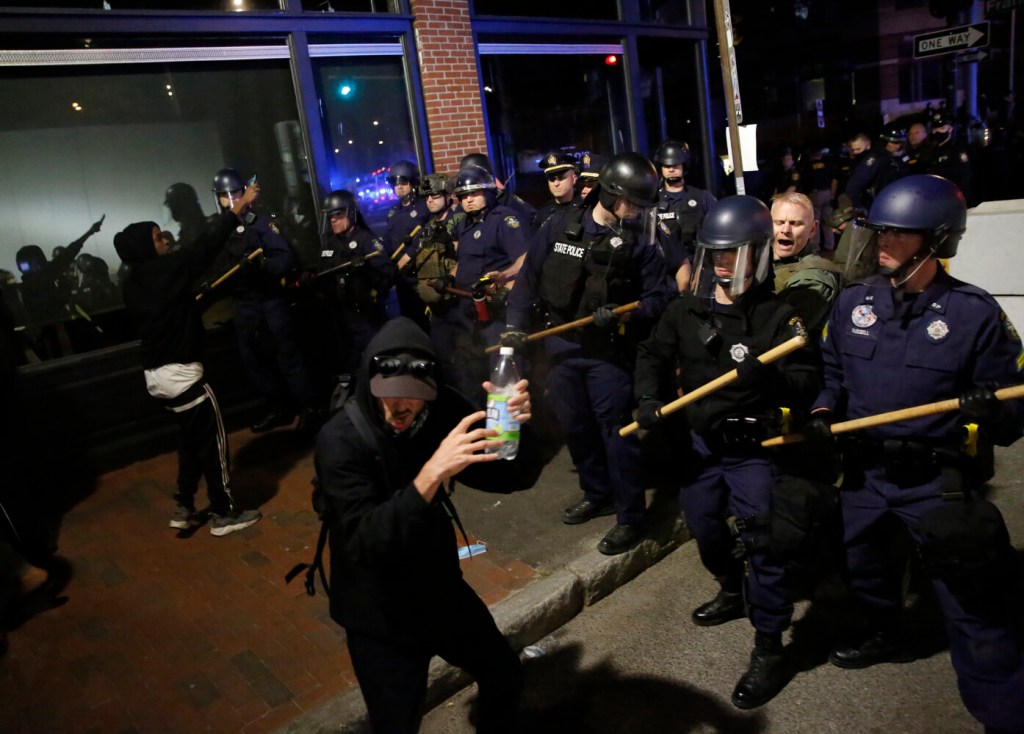
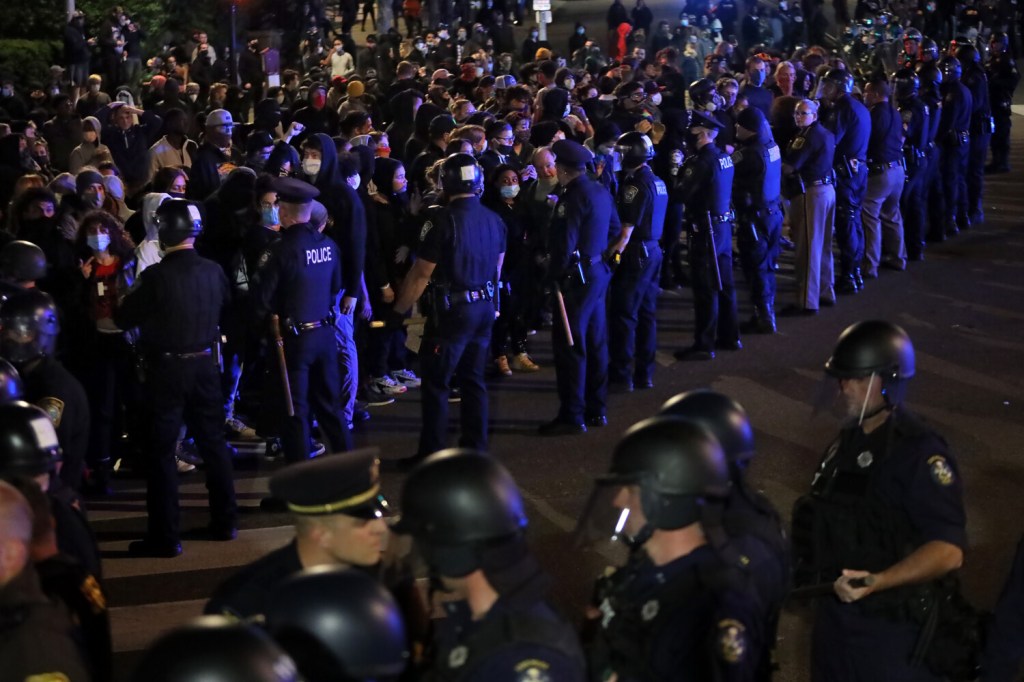
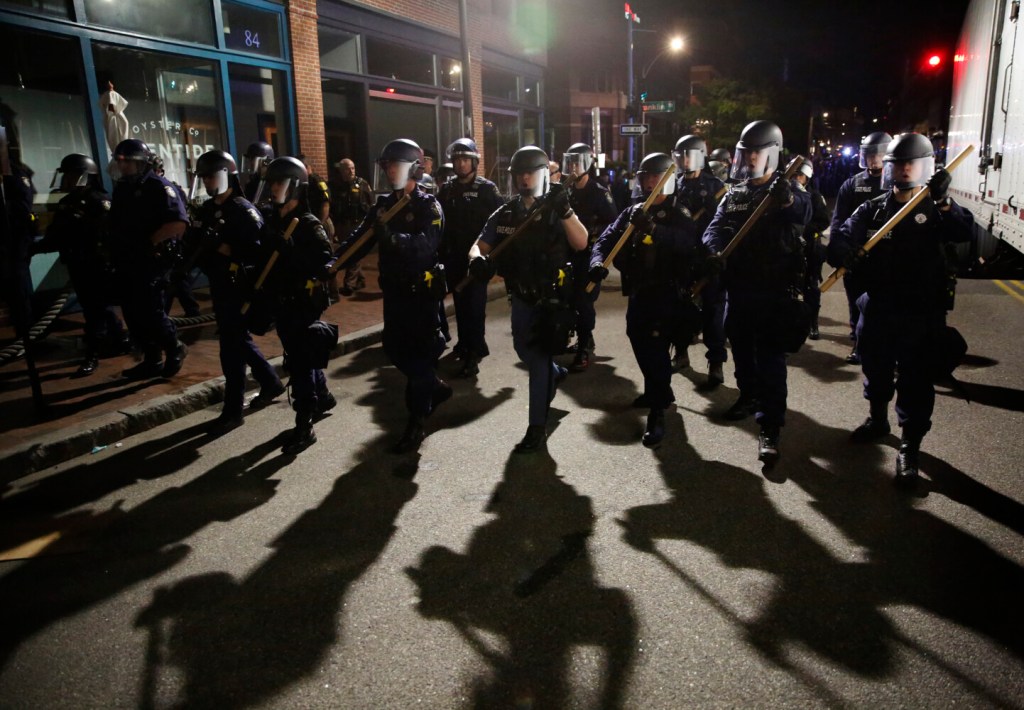
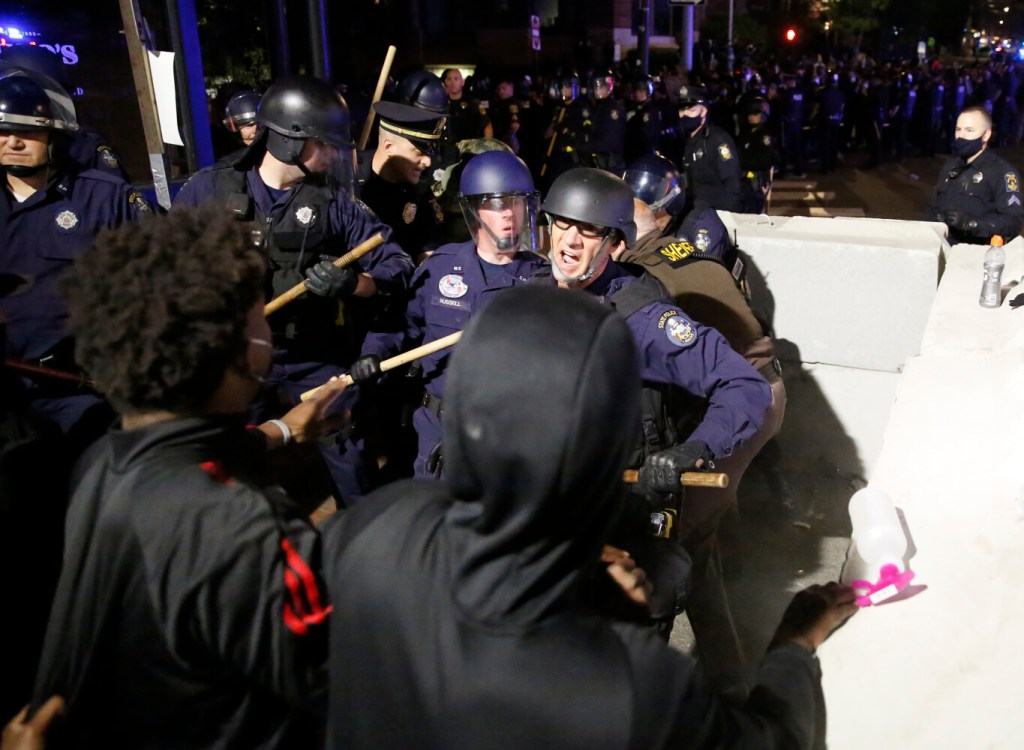
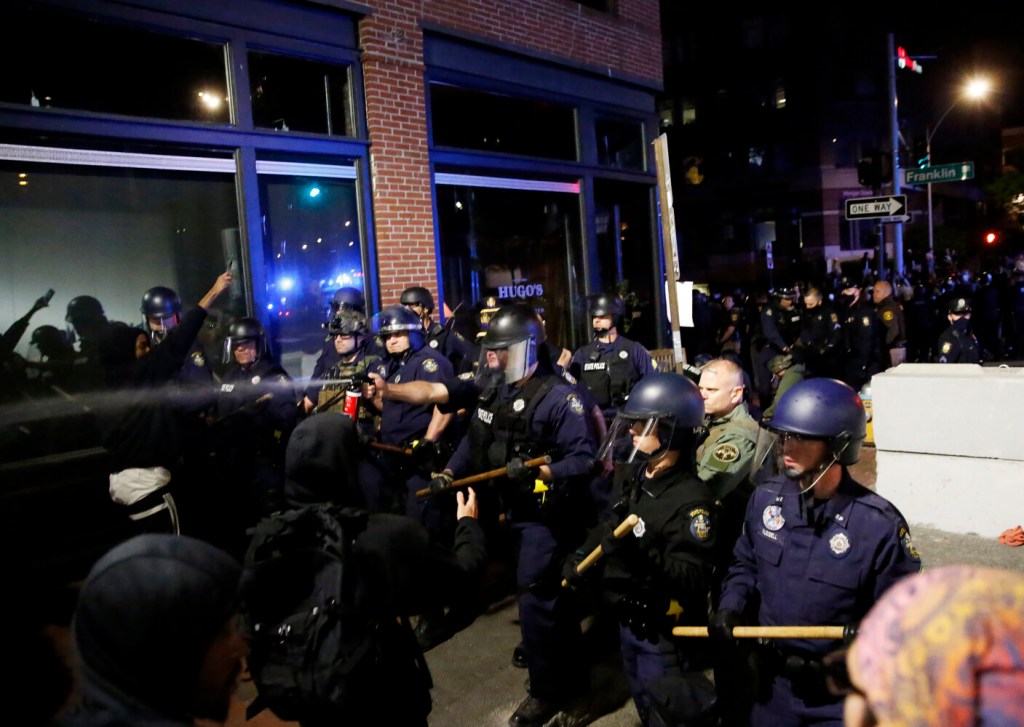
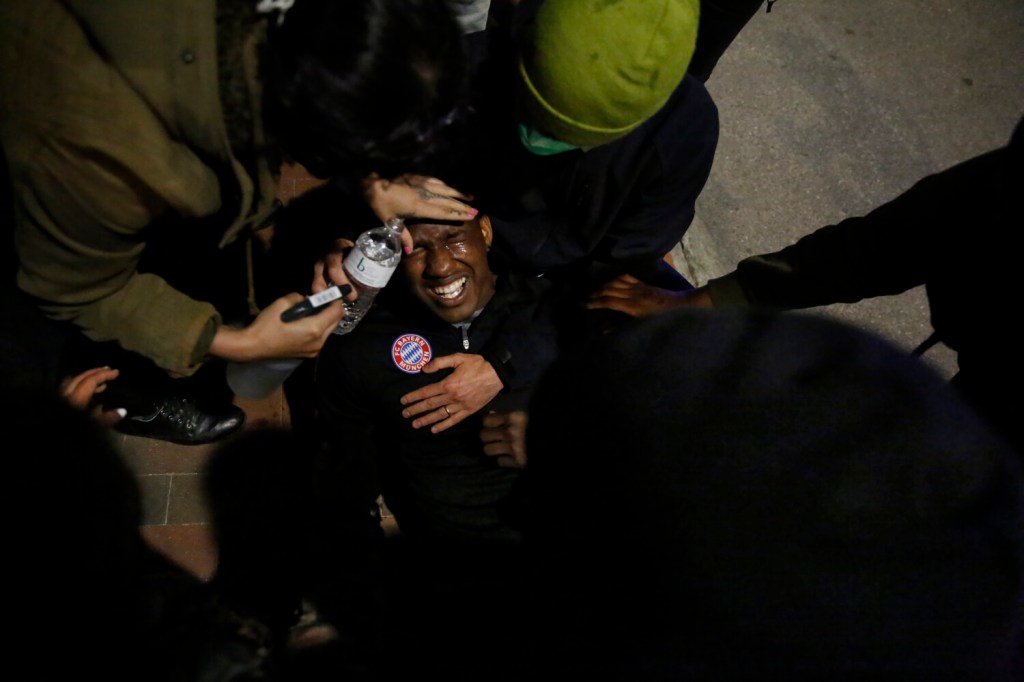
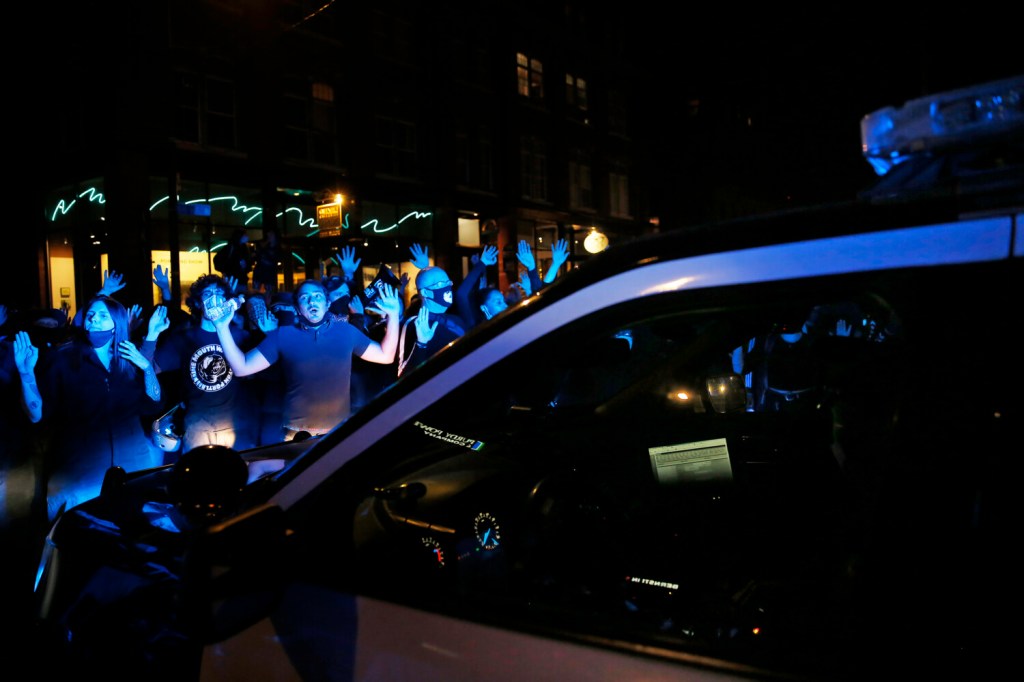
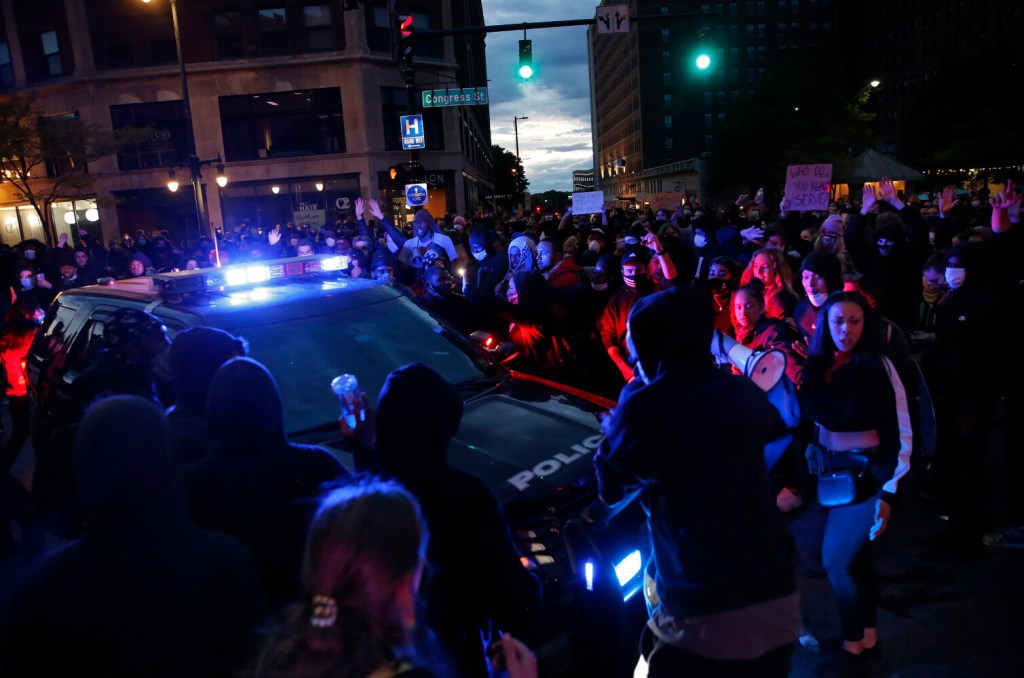
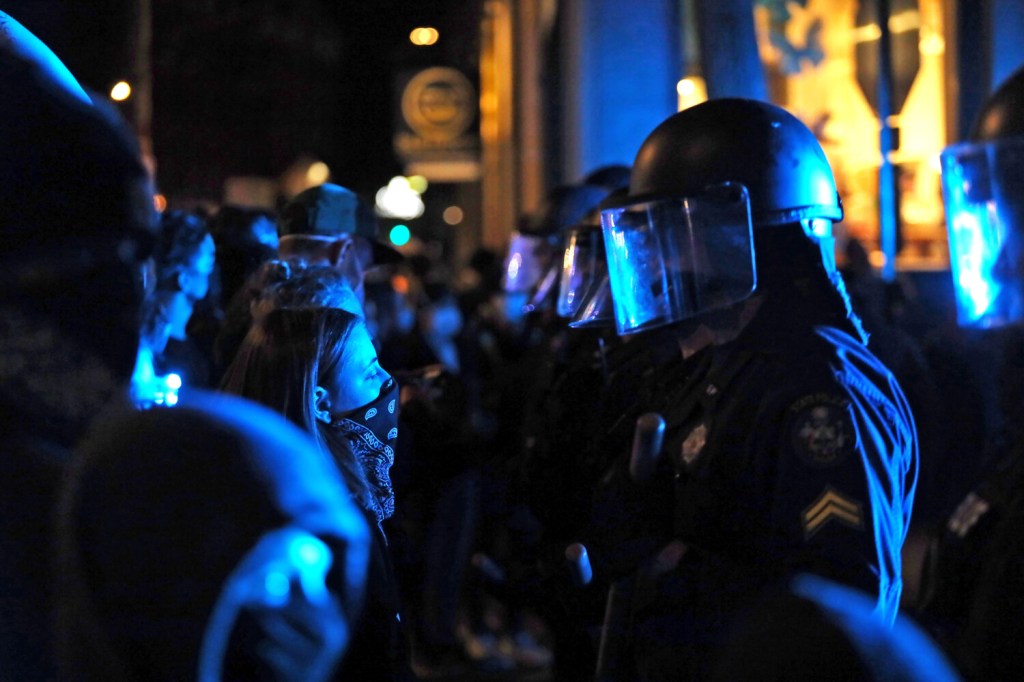
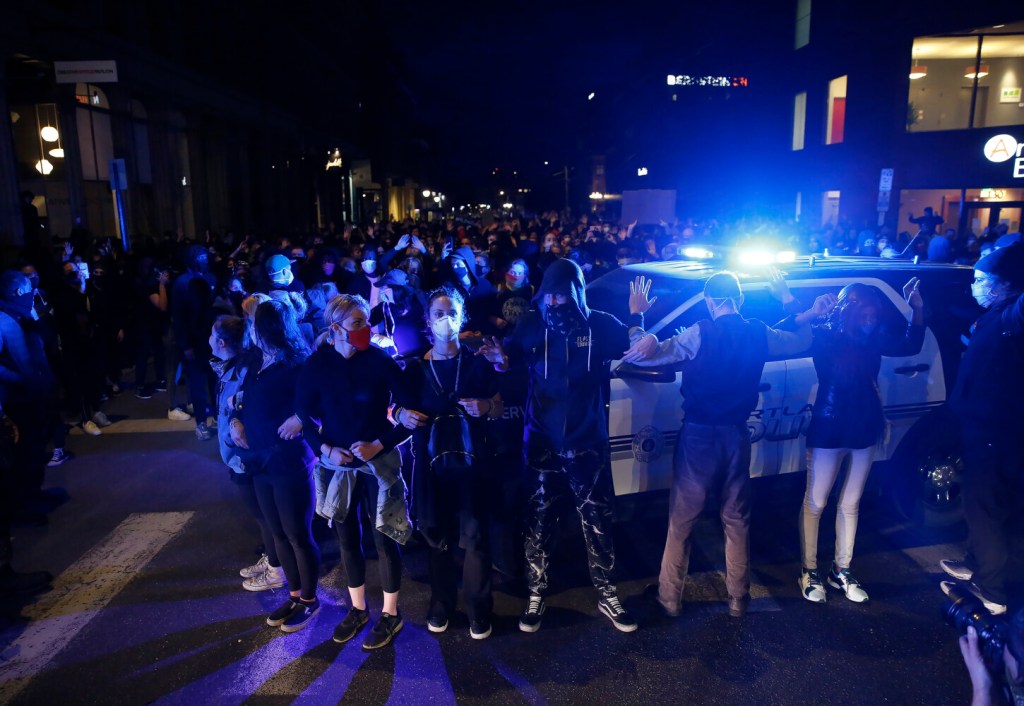
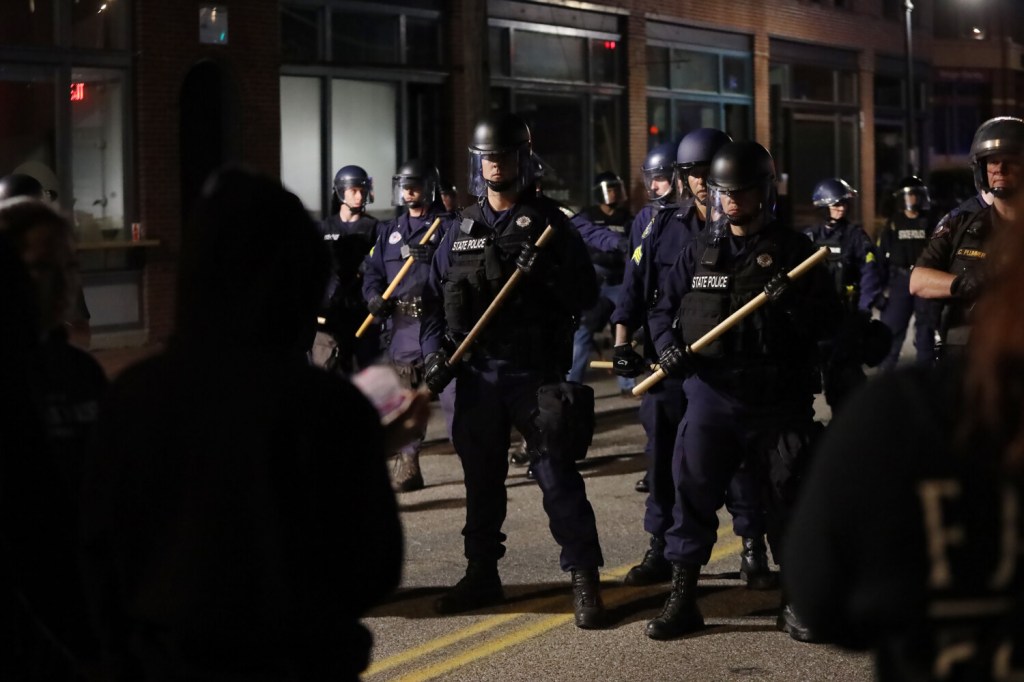
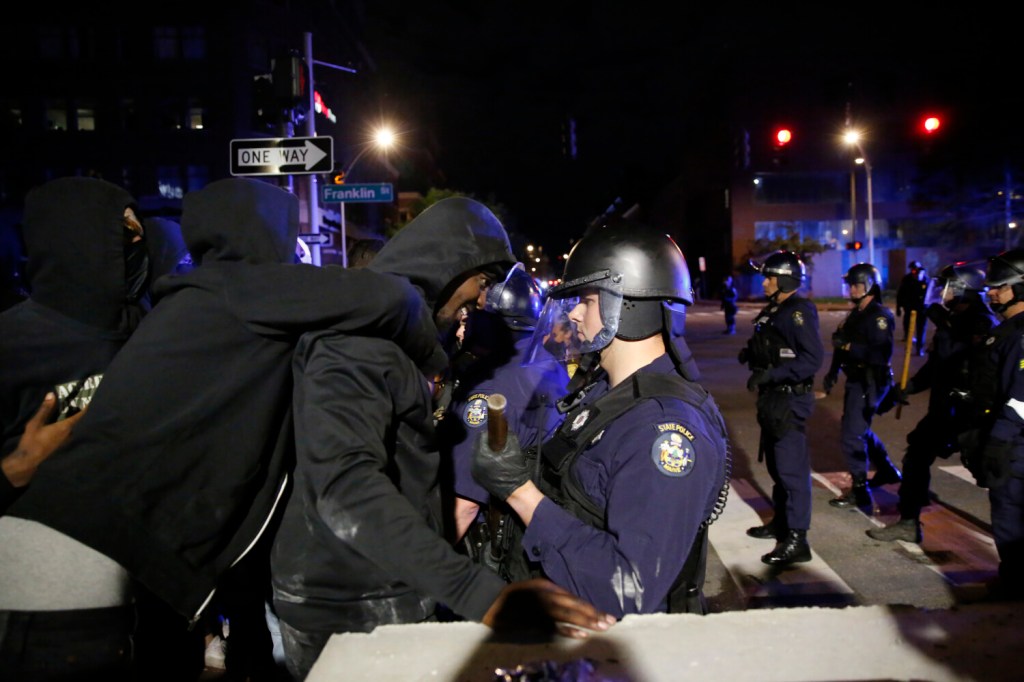
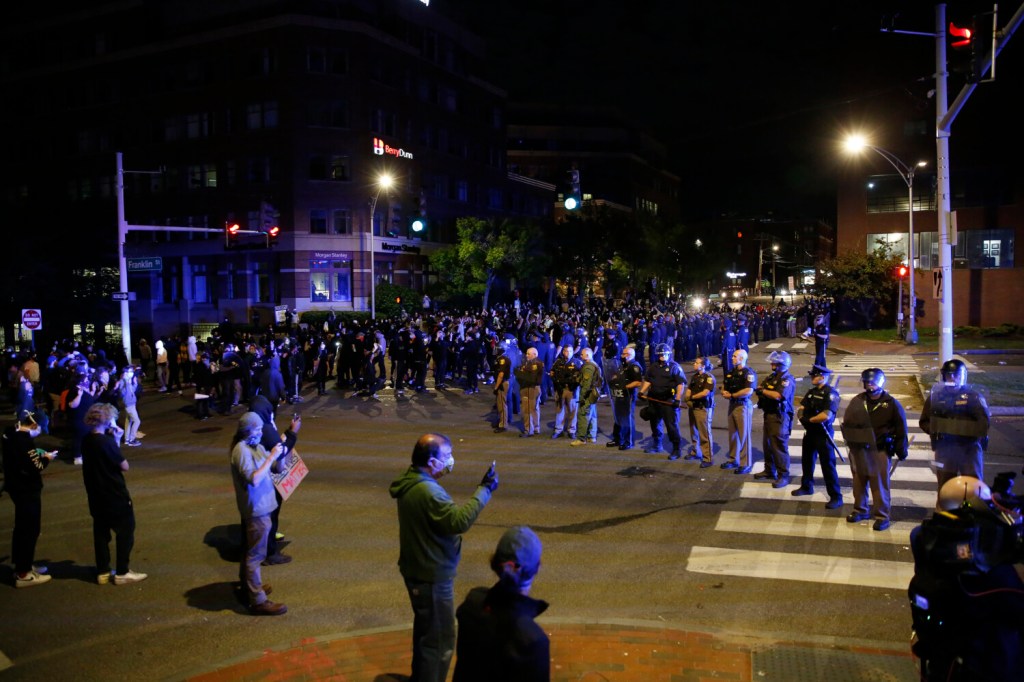
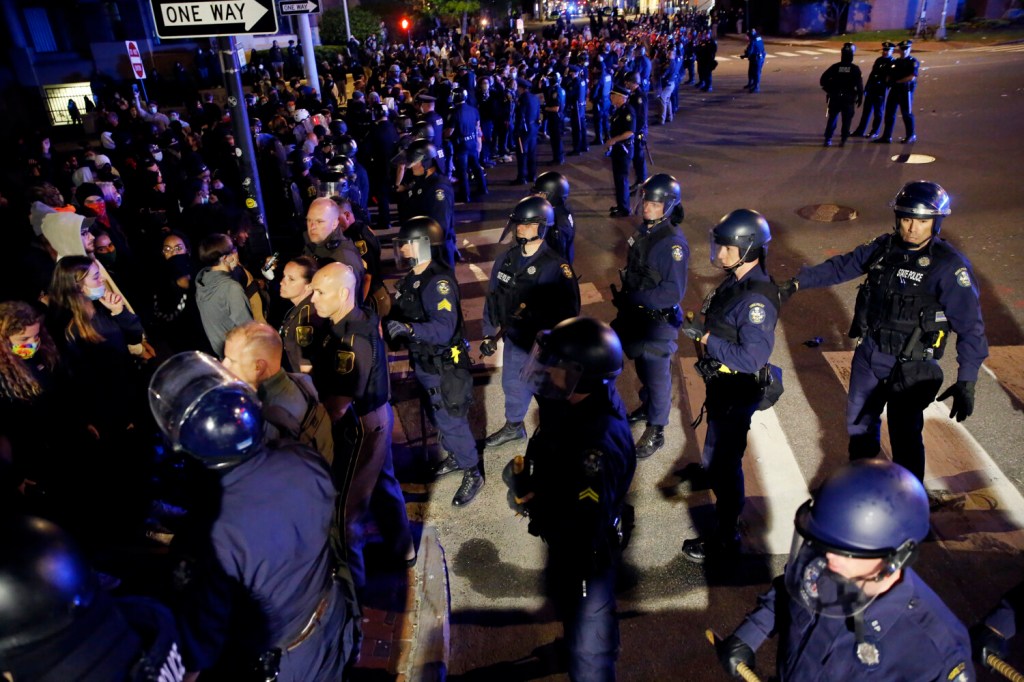
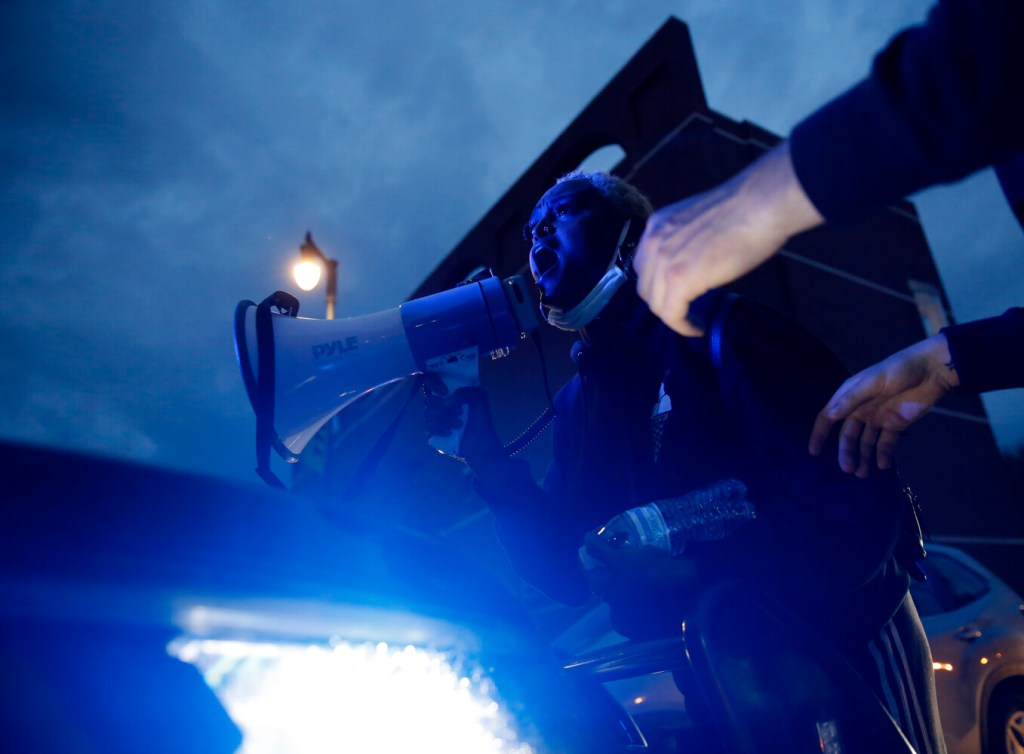
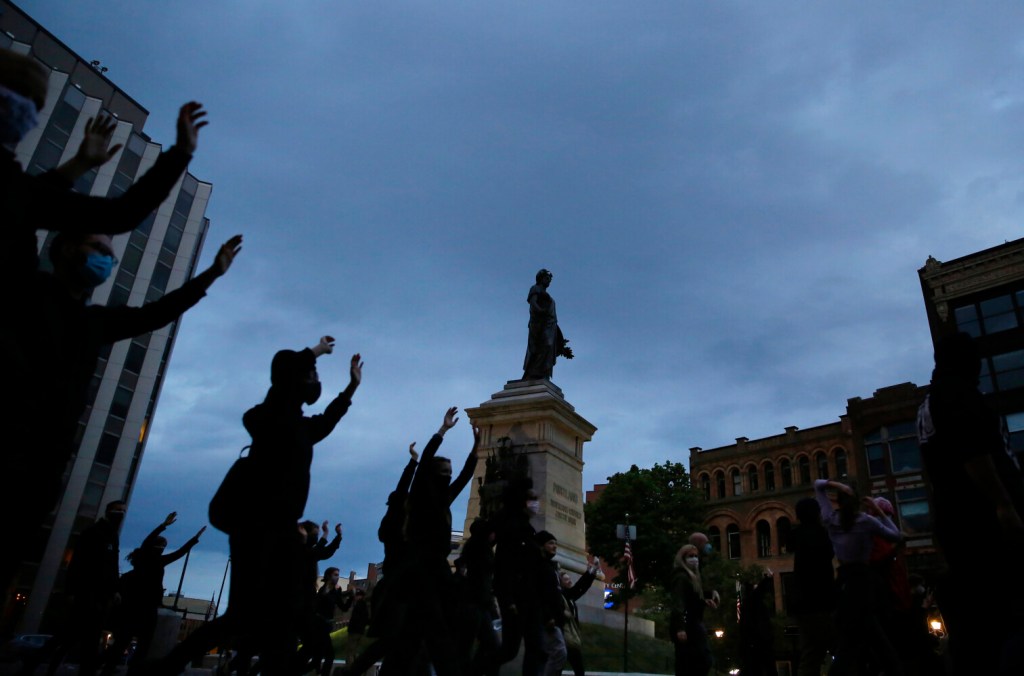
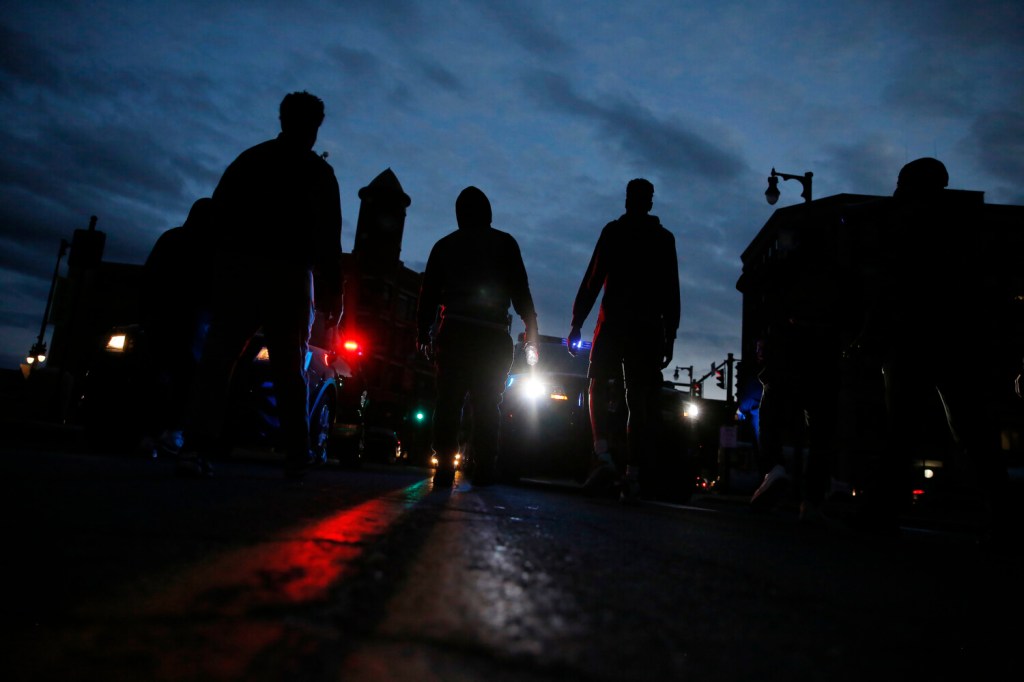
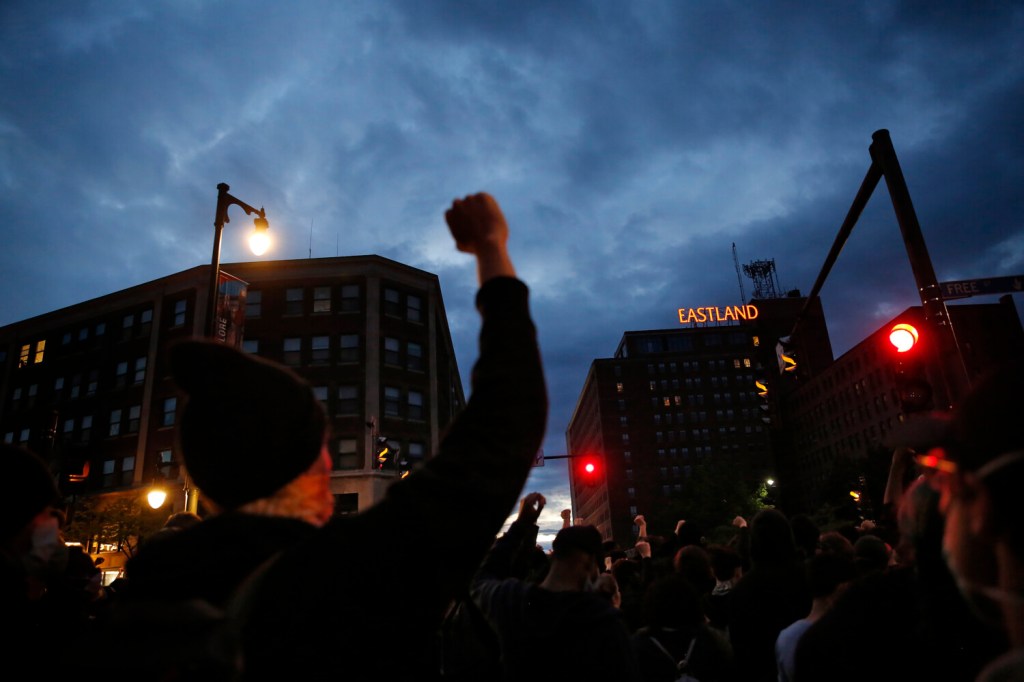
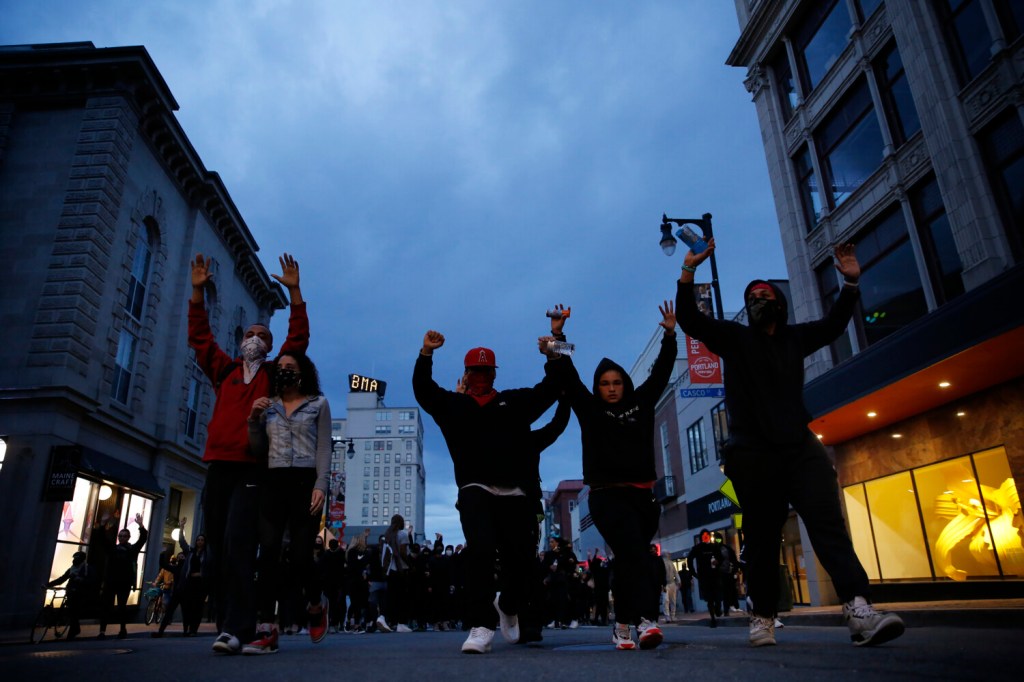
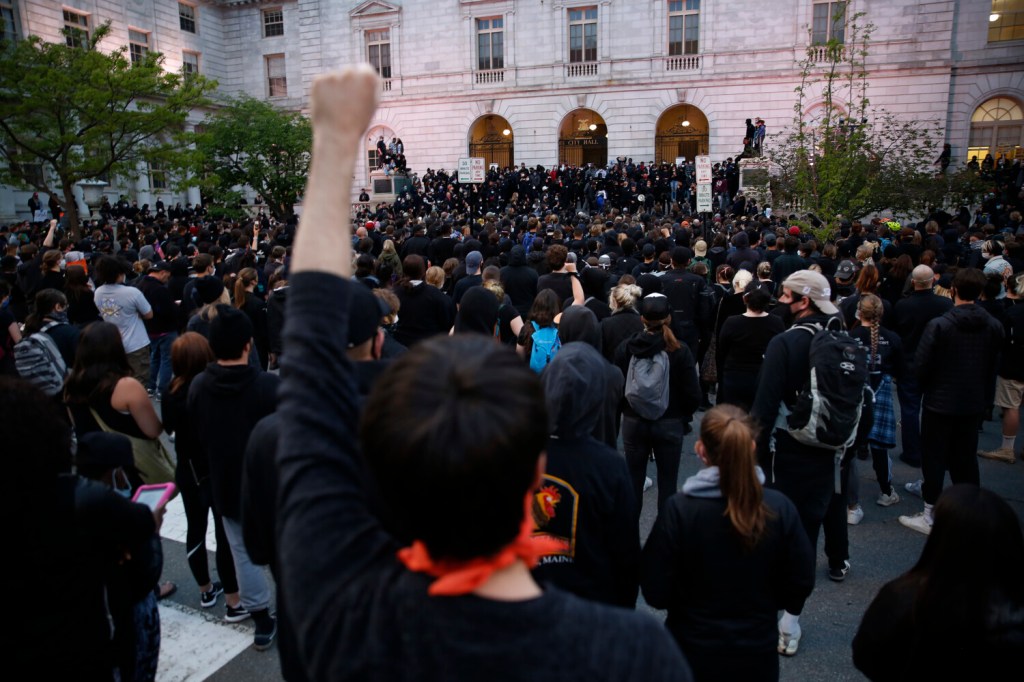
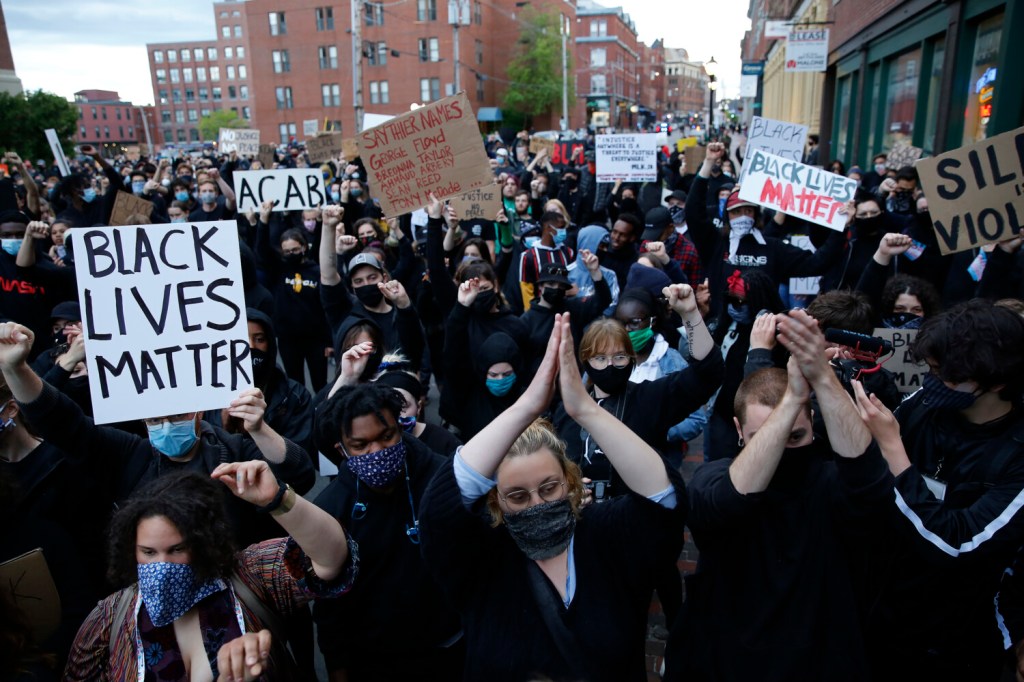
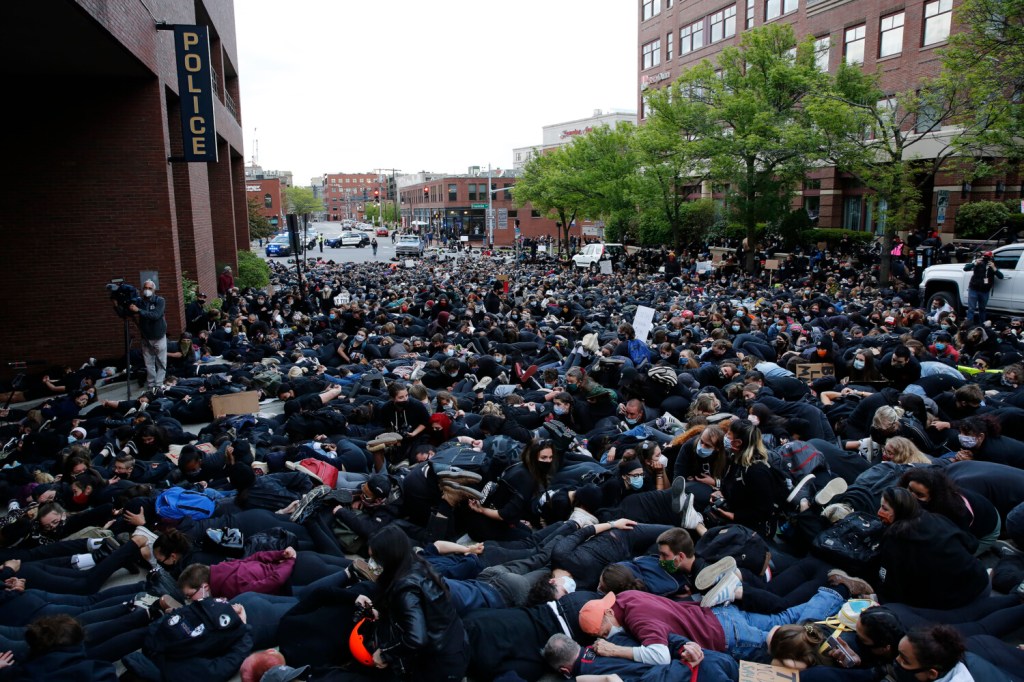
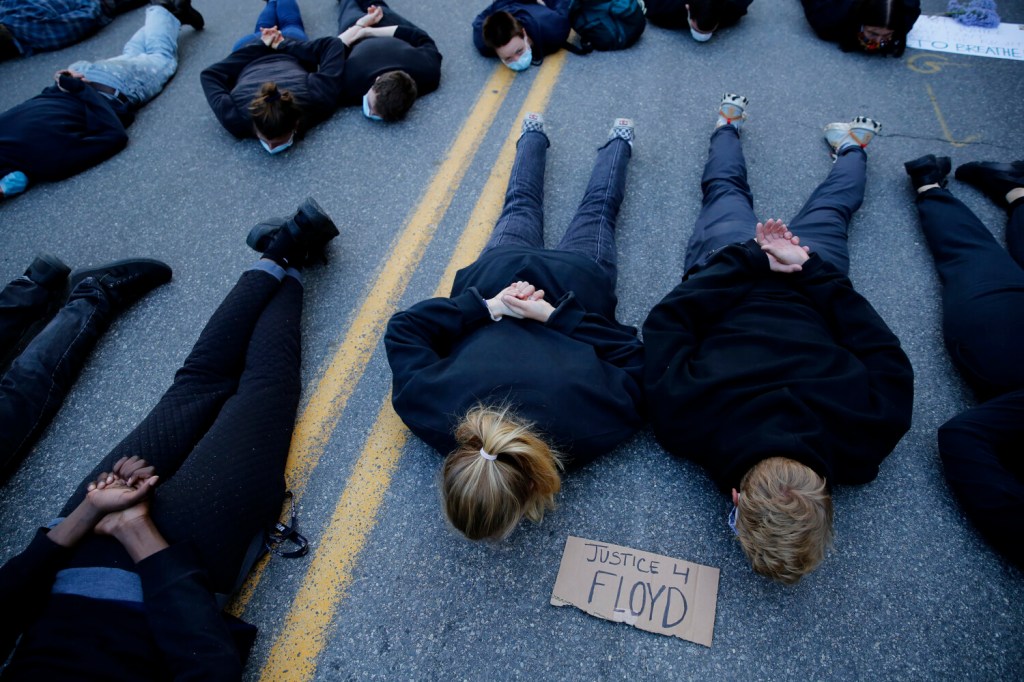
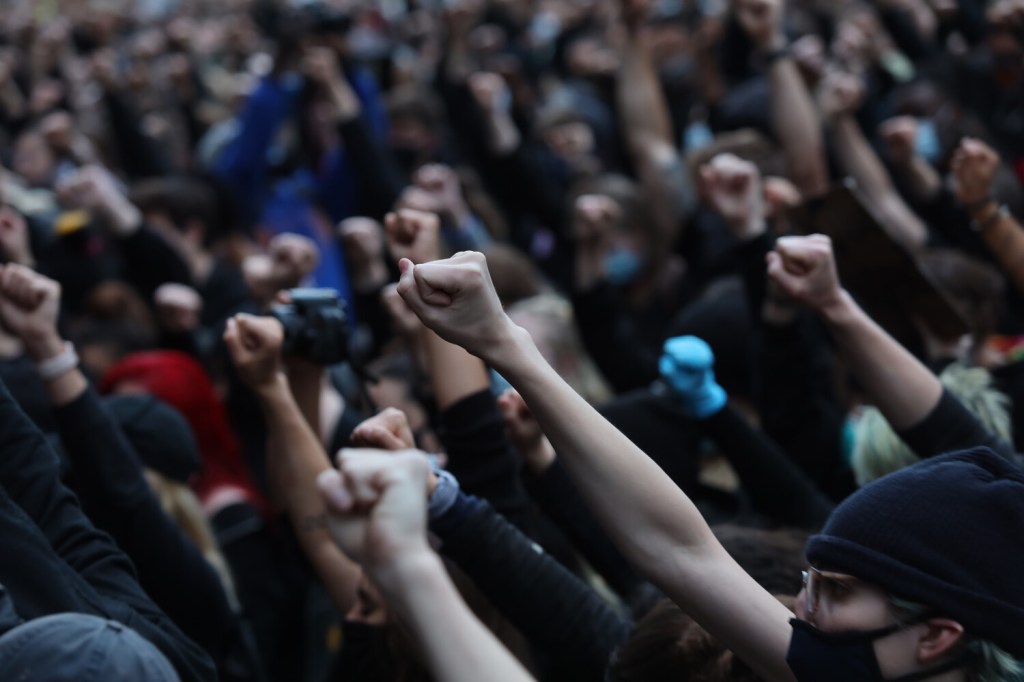
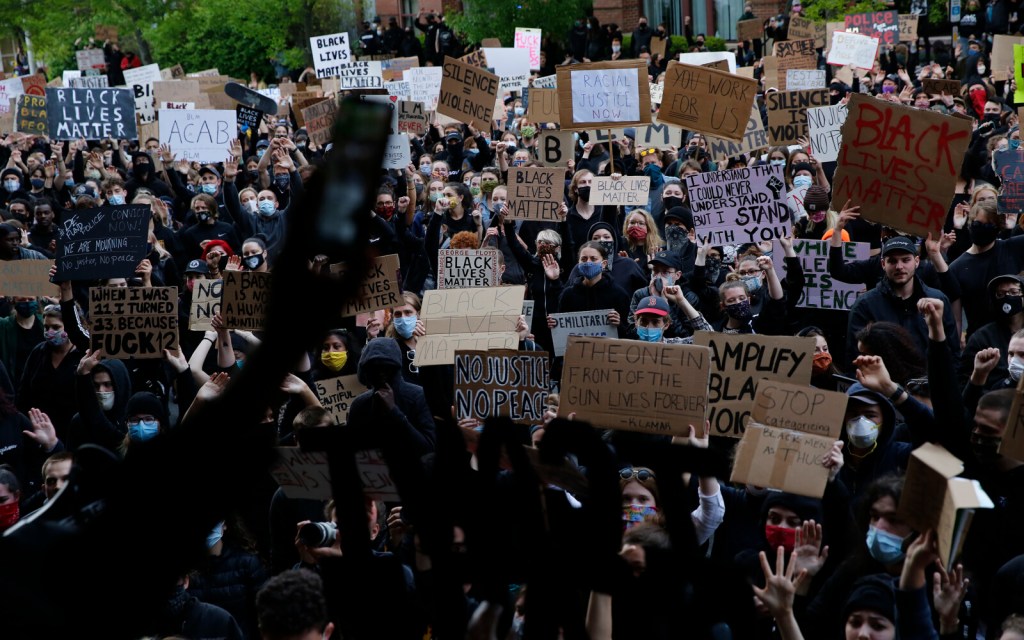
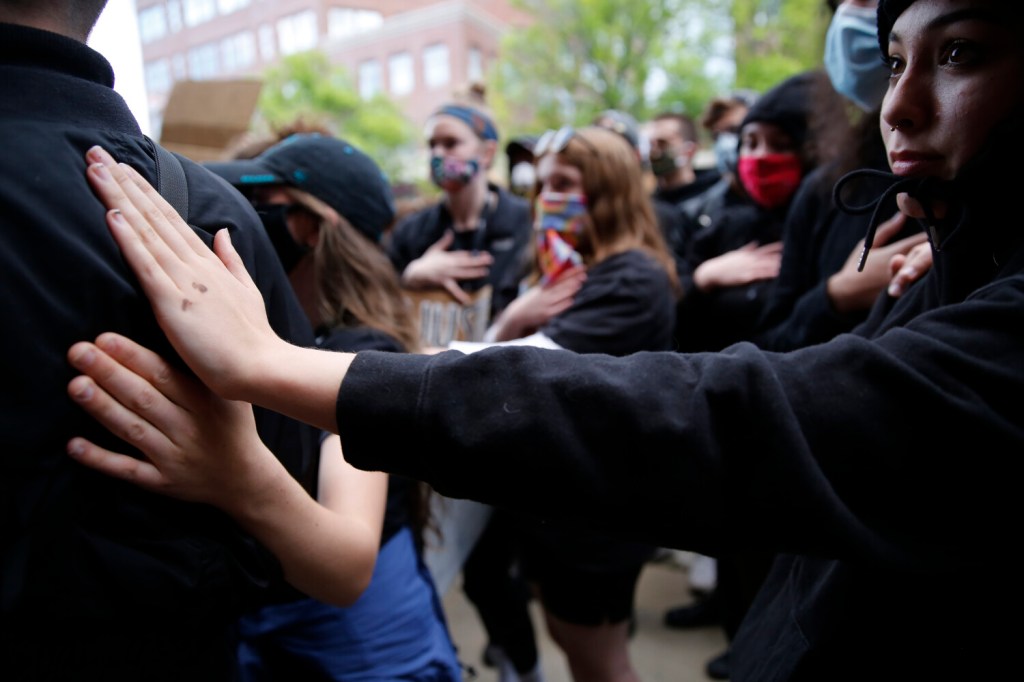
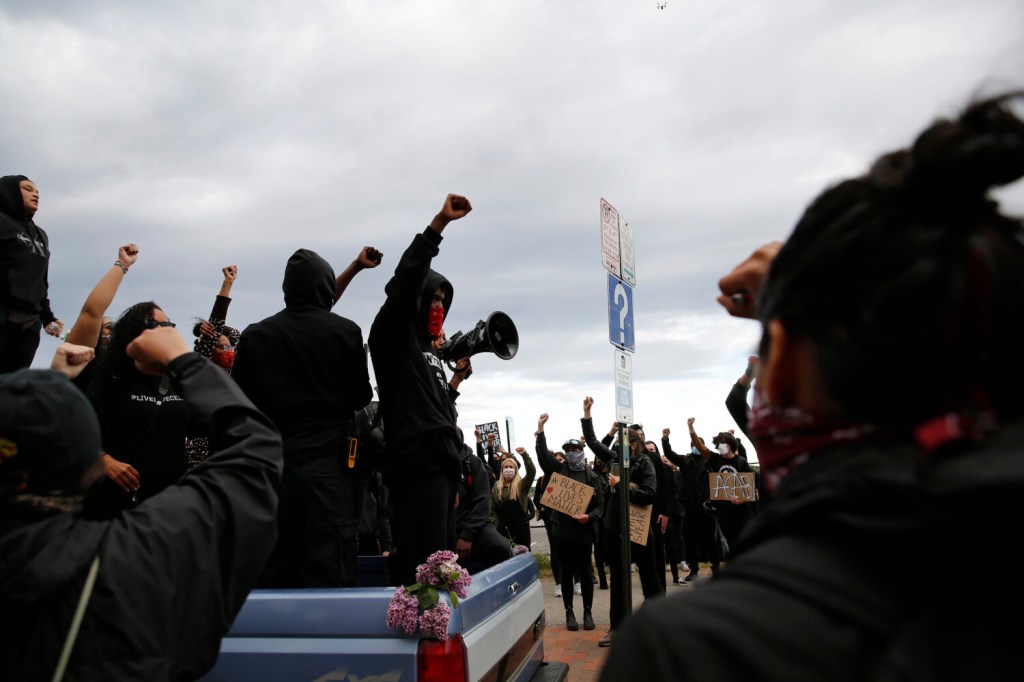

Comments are no longer available on this story